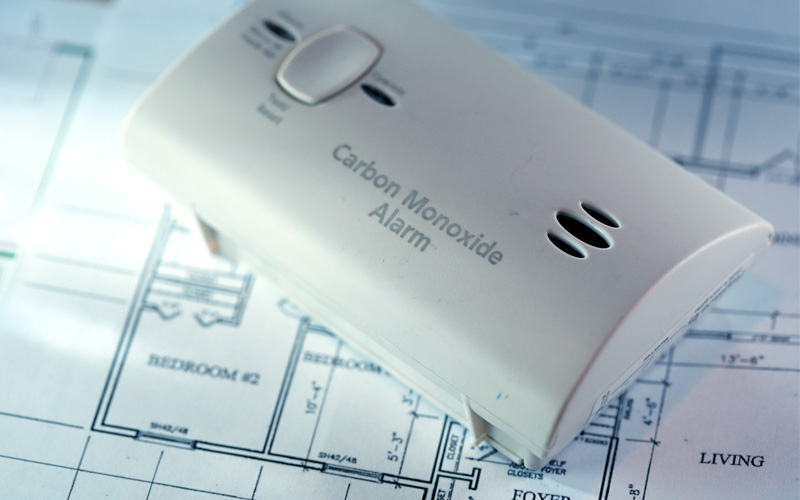Before you crank up the heat or throw another log on the fire this winter, make sure your house is safe from the dangers of carbon monoxide.
Carbon monoxide is odorless, colorless and tasteless. And if it gets trapped inside your house, it could lead to carbon monoxide poisoning, a potentially fatal condition.
“About 430 people in the U.S. die from carbon monoxide poisoning each year, and nearly 100,000 visit Emergency Rooms due to accidental poisoning,” says trauma surgeon David Scaff, DO, with Grand View Health’s Level II Adult Trauma Center.
Engines that power cars, trucks and portable generators emit carbon monoxide. So, too, do fuel-burning devices like stoves, lanterns, grills, fireplaces, furnaces and gas ranges.
If too much carbon monoxide builds up inside a garage, a shed, a house or any other enclosed space, it can be deadly to both people and animals. And if you’re sleeping or inebriated when carbon monoxide fills a room, you could die without experiencing any symptoms.
Let’s take a deeper look at what carbon monoxide poisoning is and how you can help prevent it.
Symptoms of Carbon Monoxide Poisoning
While it’s called the “silent killer,” carbon monoxide poisoning does bring some tell-tale symptoms, which may include:
- Headache
- Dizziness
- Weakness
- Upset stomach
- Chest pain
- Confusion
What to do if you experience these symptoms.
“If you believe carbon monoxide poisoning is causing any of these symptoms for you or someone you love, get everyone outside and into fresh air immediately, and then call 911,” Scaff says.
7 Steps to Prevent Carbon Monoxide Poisoning
Here are seven things you can do right now to reduce you and your family’s risk for carbon monoxide poisoning:
- Install carbon monoxide detectors on every floor of your house. Make sure there’s one near each bedroom and test them each month. Change the batteries often. Because there are several types of carbon monoxide alarms (battery-operated, hardwired with battery backup and sealed), always follow manufacturers’ instructions regarding changing batteries.
- Don’t use portable generators inside your home, basement or garage. As a general rule, keep generators at least 20 feet away from any door, window or vent.
- Don’t use a gas oven to heat your home.
- Get your chimney cleaned and checked every year, and make sure your fireplace damper is open before starting a fire.
- Don’t warm up your car while it’s in the garage, even if the door is open.
- Check your dryer vents and keep them clear of any debris or snow.
- Get all gas-burning appliances serviced at least once a year to ensure they’re in good working order.
The Grand View Health Level II Adult Trauma Center is prepared to respond to emergencies like accidental carbon monoxide poisoning. Learn more about our Trauma Center.

